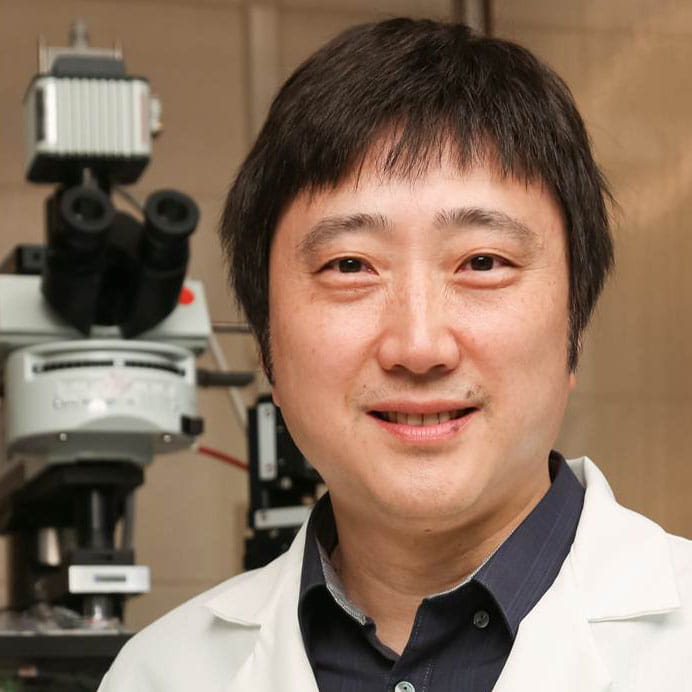
Associate Professor
College of Medicine
Department of Neuroscience, Center for Brain and Spinal Cord Repair (CBSCR)
Google scholar articles
My NCBI Collections
614-366-9406
Lab: 614-366-9409 or 614-366-9410
Fax: 614-688-8742
min.zhou@osumc.edu
Astrocyte is the most populous cell type in the brain. Dr. Zhou's research centers on the role of astrocyte ion channels, gap junctions, receptors, transporters and Na+-K+-ATPase in the normal brain and neurological disorders.
Current Research:
Astrocytes establish the largest syncytial networks in the brain through conduit proteins, termed gap junctions. The lab's recent discovery shows that an extensive cell-to-cell gap junction coupling enables astrocytes to truly function as a team, therefore, more effectively than previously thought in critical brain homeostasis. A new research direction emerging from this discovery aims at the novel functions that are achieved at astrocyte syncytial system levels.
- An electrically low cell-to-cell resistance is a prerequisite for astrocytes to function as a system. Their research aims at the anatomic basis and biophysical understanding of how a low interastrocytic resistance is evolved in developing brain and maintained throughout the adulthood.
- Their research considers that the functional proteins on the membrane of individual astrocytes, namely ion channels, receptors, transporters and Na+-K+ ATPase, are shared properties of a network system. They are studying how a change in each of these functional properties affects the entire function of the network system.
- Their research considers an astrocyte network, but not a single astrocyte, as an integral part of the neural circuit. They are exploring regulatory mechanisms that enable an astrocytic network and its associated neural circuits function as interactive components in basic and advanced brain functions.
- Their research considers that the physiological operation of astrocyte network is highly energy demanding in support of the basic homeostatic and advanced brain function. They are particularly focused on the energy generated from astrocyte mitochondria and its contribution to astrocyte physiology.
- Their research considers a dysfunctional astrocyte syncytium is etiologically linked to brain disorders. They are examining when and how an anatomically and functionally disrupted astrocytic network is associated with various progressive stages of brain disorders, such as stroke, epilepsy.
Research Techniques: Dr. Zhou's lab uses a variety of techniques to study the morphology and function of astrocytes, NG2 glia and neurons in the brain. Current projects include the use of these preparations and techniques: acute brain slices, freshly dissociated brain tissues and single cells, confocal microscopy, blockface serial scanning EM, Leica deconvolution microscopy, CUBIC /CLARITY tissue clearing, immunocytochemistry, RT-PCR, Western blots, ion sensitive dye imaging, LTP paradigm, single and dual patch clamp analysis. The lab uses transgenic and gene knockout mice to understand the structure and function of astrocytes.
Degrees: Tongji Medical College, and Friedrich-Schiller-University Jena
Postdoctoral: Albany Medical College, Dr. Harold Kimelberg
